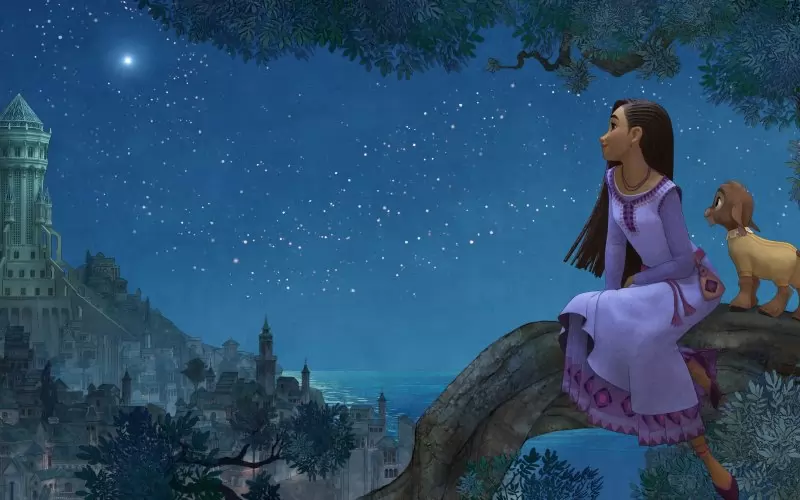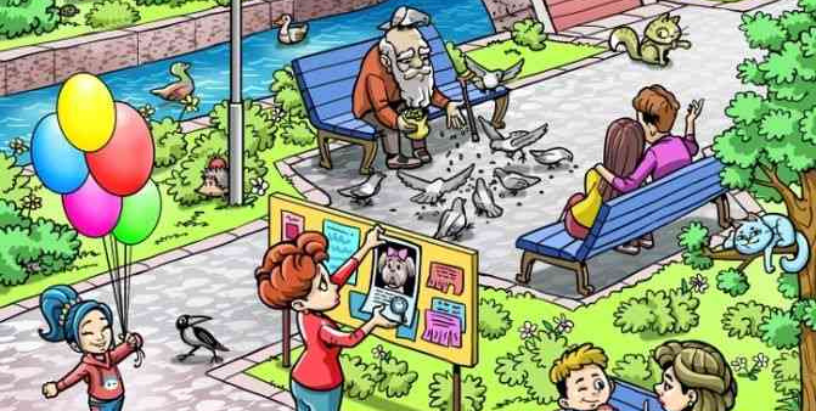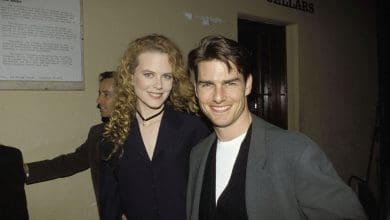“Wish”: how to waste 100 years of heritage

Disney’s anniversary animation is a cynical marketing exercise like almost everything they’ve been doing lately
How great things looked for Disney less than five years ago. The studio finished 2019 with seven out of nine films for the year grossing over $1 billion at the box office. Among them were Marvel superheroes (“Avengers: Endgame”, “Captain Marvel”), new readings of cartoon classics (“Frozen 2”, “The Lion King”, “Aladdin”) and “Star Wars” (the final ” The Rise of Skywalker”), and Pixar’s animated masterpieces (“Toy Story 4”). At the same time, the company added to its portfolio one of the oldest film studios in Hollywood – 20th Century Fox and changed its name.

Although the heroine is 17, the target audience of “Desire” is somewhere around 6 years old.
All this great future that the CEOs saw before them came crashing down three months later. The coronavirus killed the cinema for a long time and the comic characters – almost forever. Creativity even in the animation departments has fallen below the bare minimum. Only James Cameron’s Avatar, whose IP (intellectual property) Disney acquired in the takeover of Fox, gave hope with its inevitable box office success. Even the streaming platform Disney+ didn’t take off as well as expected, because Netflix doesn’t come from every tree.
Now, in 2023, Disney is celebrating its centennial while reaping flop after flop at the box office. Among the biographies recalling how Walt was not really a kind storyteller, but a greedy ass who often robbed his animators of authorship, we cannot deny the fact that in the past century – the century of cinema – he and his followers created some of the most loved stories for children of all ages.
The animated film “Desire” expresses the desire to remind the audience of this. To celebrate the anniversary and pay tribute to the painted heritage that underpins the company (although in recent decades it has made its main income from feature cinema). But, as the site of the late critic icon Roger Ebert, now written by Brian Talerico, wrote, it turned out to be “the most aggressive piece of Disney propaganda in years.”
Like almost everything the company has been doing lately, “Desire” is a cynical exercise: it crosses a number of familiar and beloved elements to evoke emotions anew. But magic cannot be calculated. The only feeling “Desire” evokes is nostalgia for the beautiful naivety of classics that the viewer may wish to watch again – and show their children.
All the more unfortunate that behind the film is the Oscar winner Chris Buck – one of the two writers of “Frozen”, the best that Disney has created on the animation front this century. He also directed another successful film of the studio – “Tarzan” from 1999. He was partnered by the Thai debutante with unpronounceable name Phon Wirasanthorn, who worked as a storyboard artist on “Frozen Kingdom”, “Vayana the Brave”, “Zootropolis” and “Paradise and the last dragon”.
Plot “Wish” is based on the song Wish Upon a Star from “Pinocchio” (1940). Accordingly, Lee Harlin’s tune from the wartime classic has also been “re-read” by Dave Metzger. Everything in “Desire” is a quote, cover, remake, recycling, second hand. The heroine Asha lives in the fairy-tale kingdom of Rosas, where the wish of every inhabitant is turned into a star. But he doesn’t know what he really wants – because the stars are kept by Prince Magnifico, supposedly a generous and caring patron. And how can you strive to make your dreams come true if they are stolen from you?
That’s the question in Desire, and 17-year-old Asha sets out on a crusade against the despot with a little help from supernatural helpers. From “Bambi” and “Peter Pan” to “Snow White and the Seven Dwarfs” and “Sleeping Beauty”, everything that Disney has done in the last hundred years is included in the formula. Naturally, with the hope that it will be profitable. But that’s exactly what’s been bugging the studio’s accountants lately: “Desire” was left in a dismal third place at the box office behind “Napoleon” and second-weekend “The Hunger Games: Mockingjay.”
Because accounting cannot replace inspiration, and a business plan is not an art form. Whoever put the word “shareholders” (seriously!) into the script of “Desire” has already doomed it to failure. Of course, this isn’t some irritating colossal failure, it’s a nice, colorful, technically sound failure with lots of song and dance. Tolerable, not exciting. The race-ethnicity card is also played, and it neither hinders nor helps: with characters like these that the viewer doesn’t care about.
However, there is something in “Desire” that worked: the Bulgarian dubbing. Singer Kerana from “Kerana and the Astronauts” lends her wonderful voice and infectious energy to Asha (originally performed by “West Side Story” Oscar winner Ariana DeBose) and it enlivens the at times quite an anemic narrative. Even among the songs, there is no expressive favorite like Elsa’s Let It Go and Encanto’s We Don’t Talk About Bruno. There won’t be any Oscars like those two movies got. Hopefully, it will be a lesson to the centenarians.



